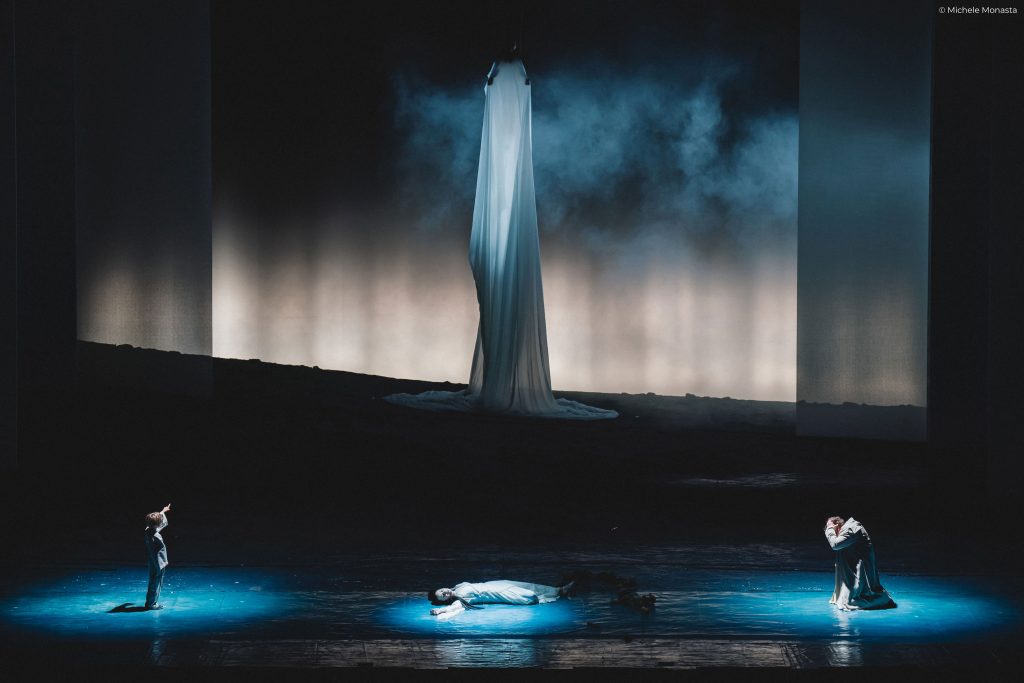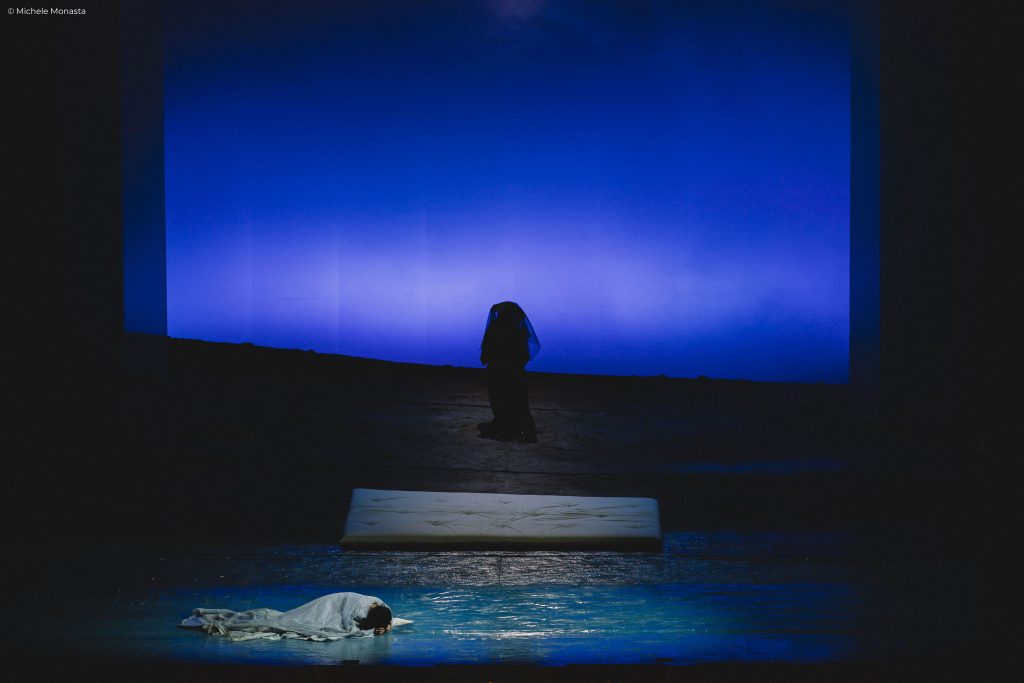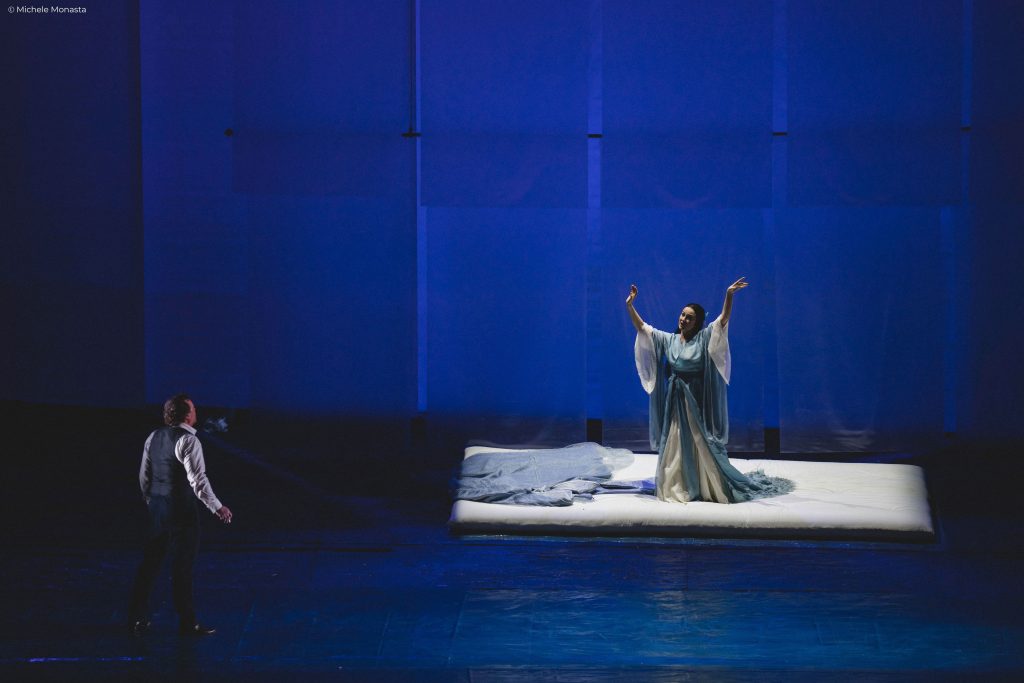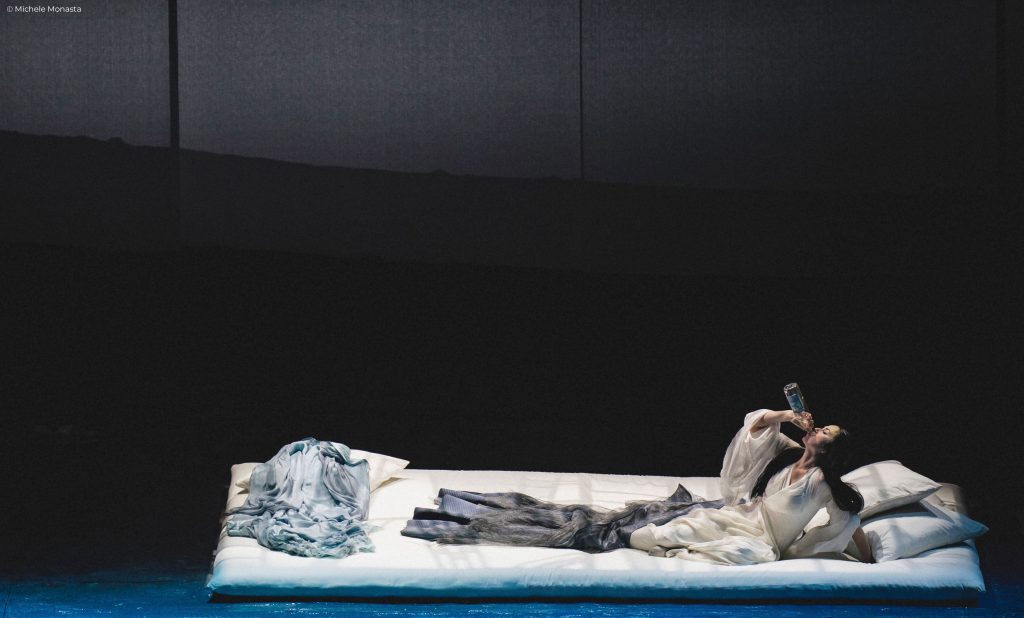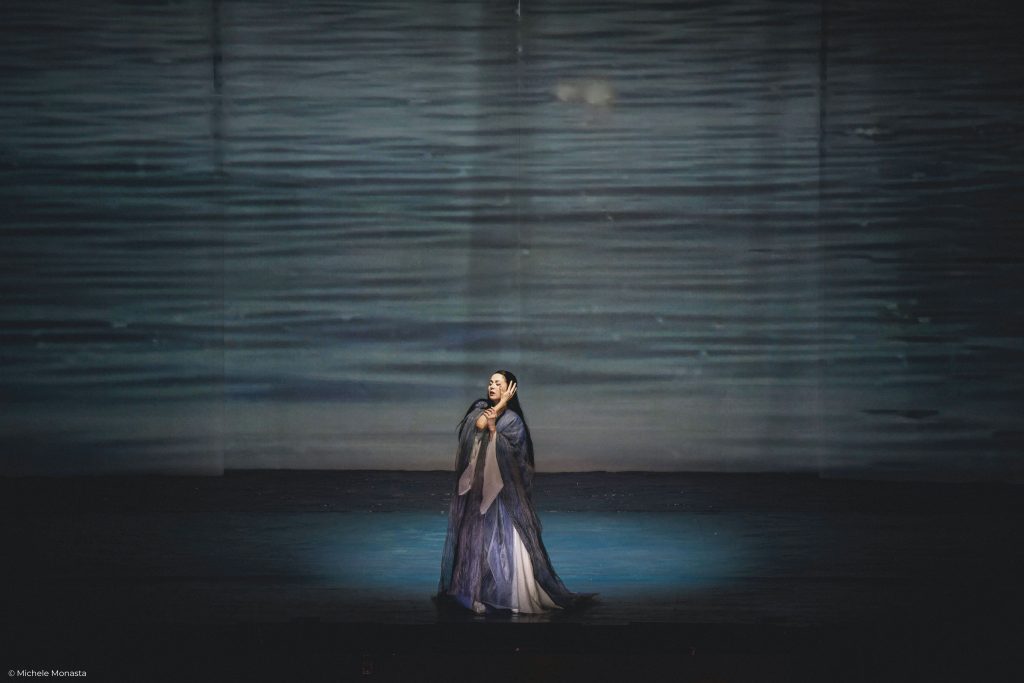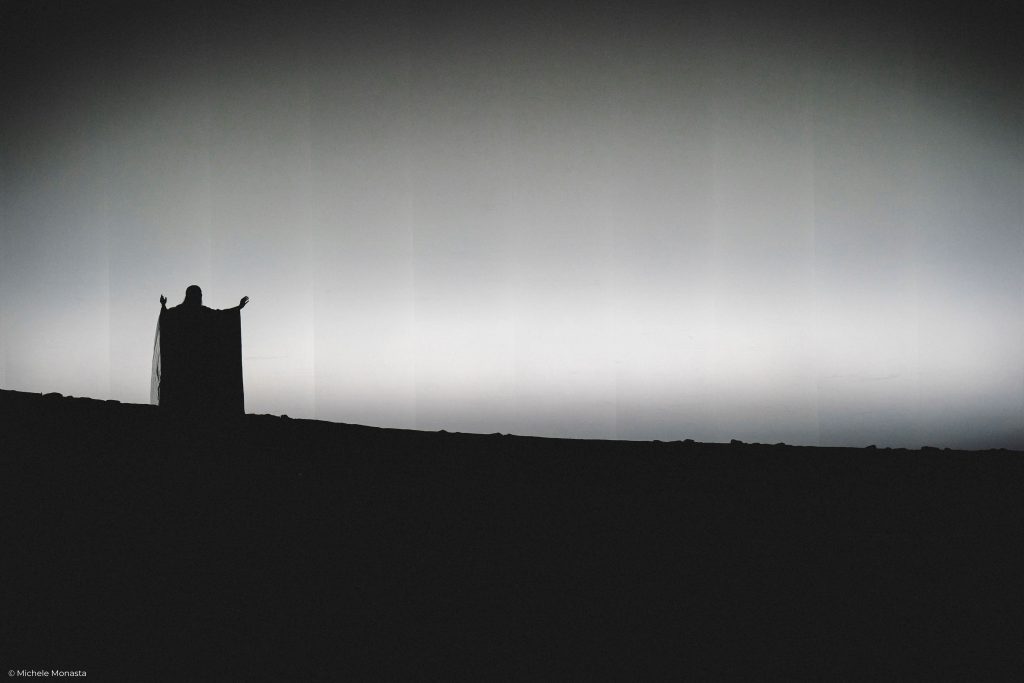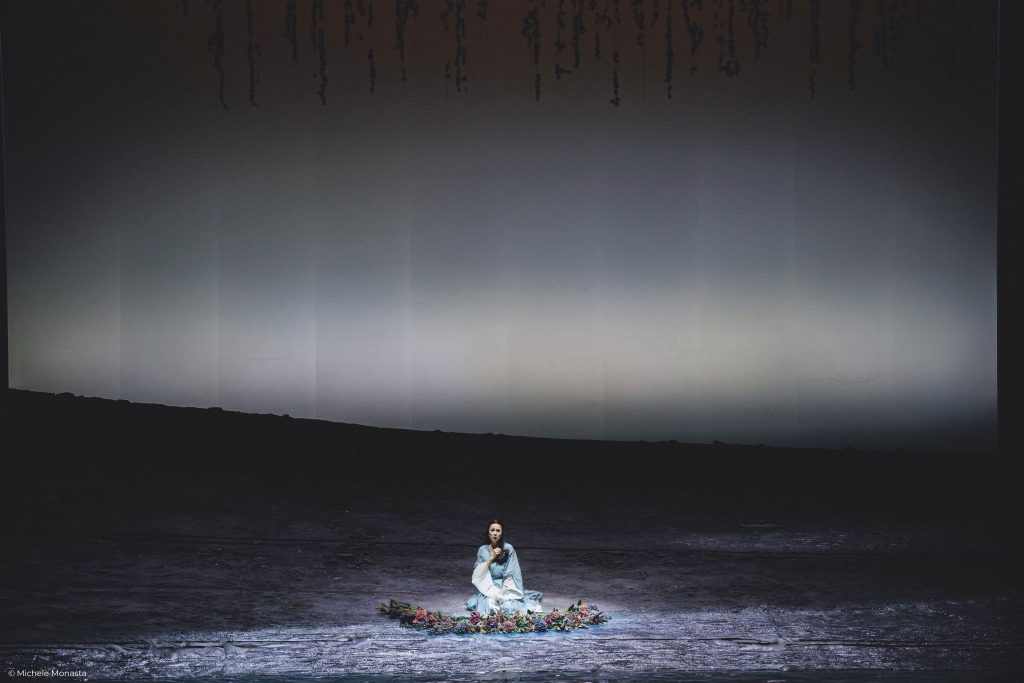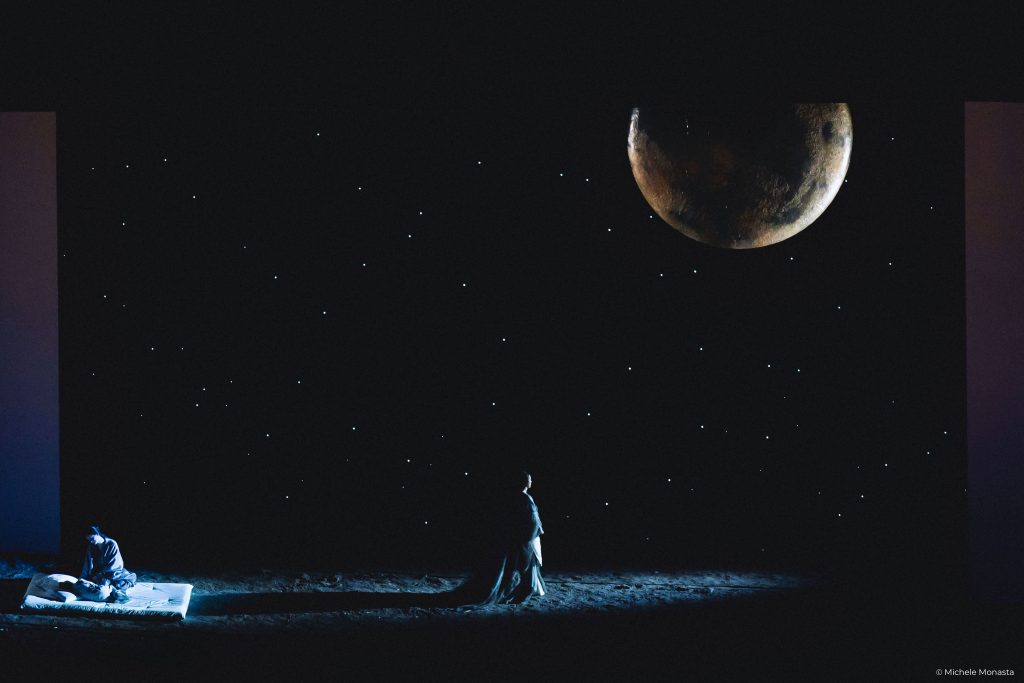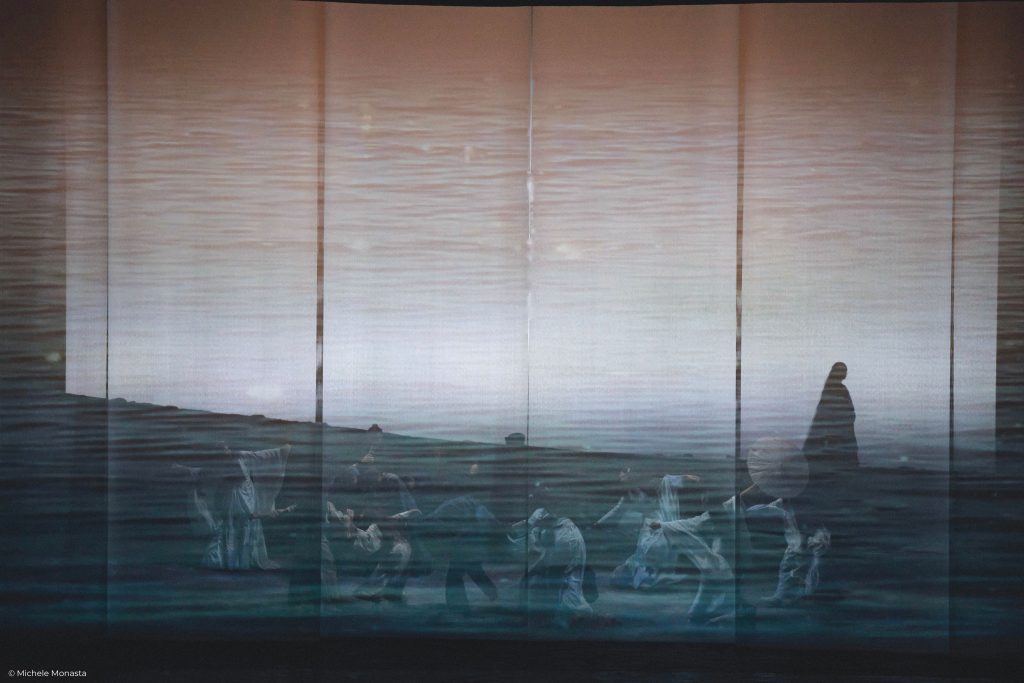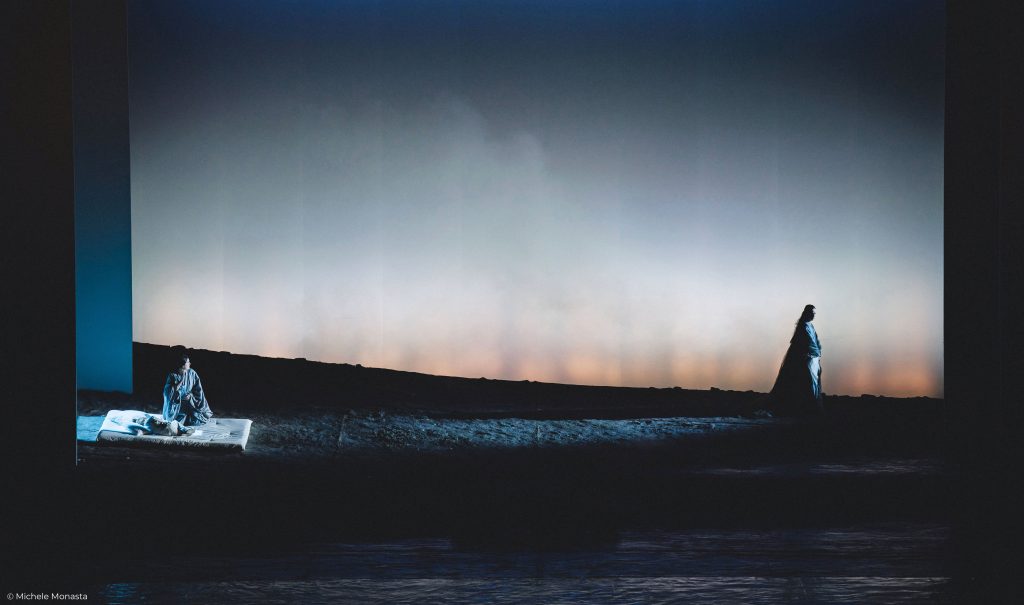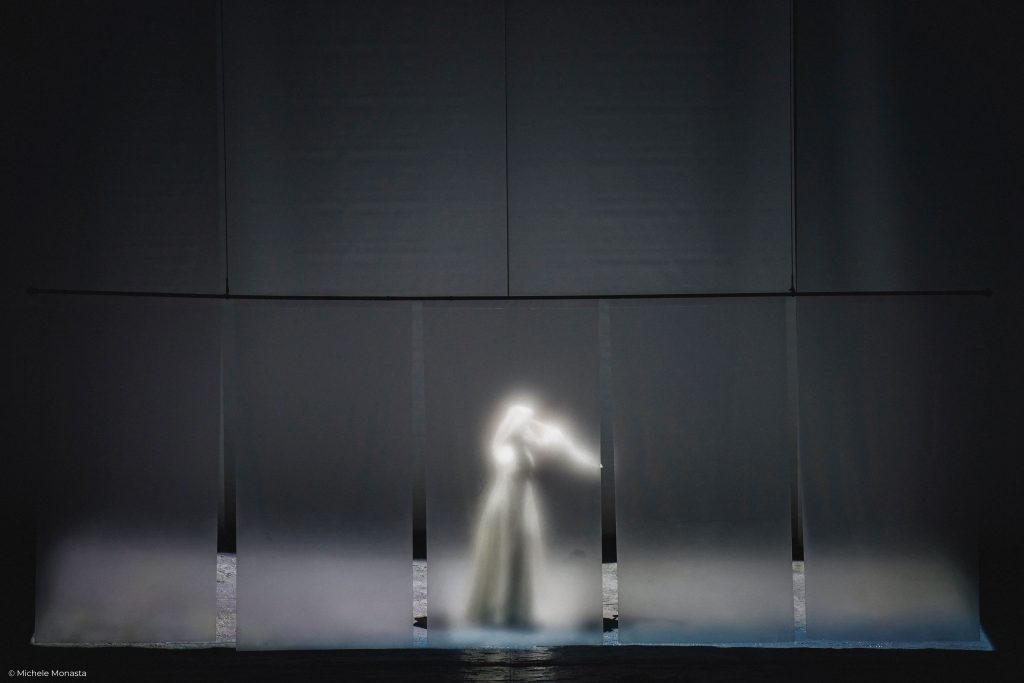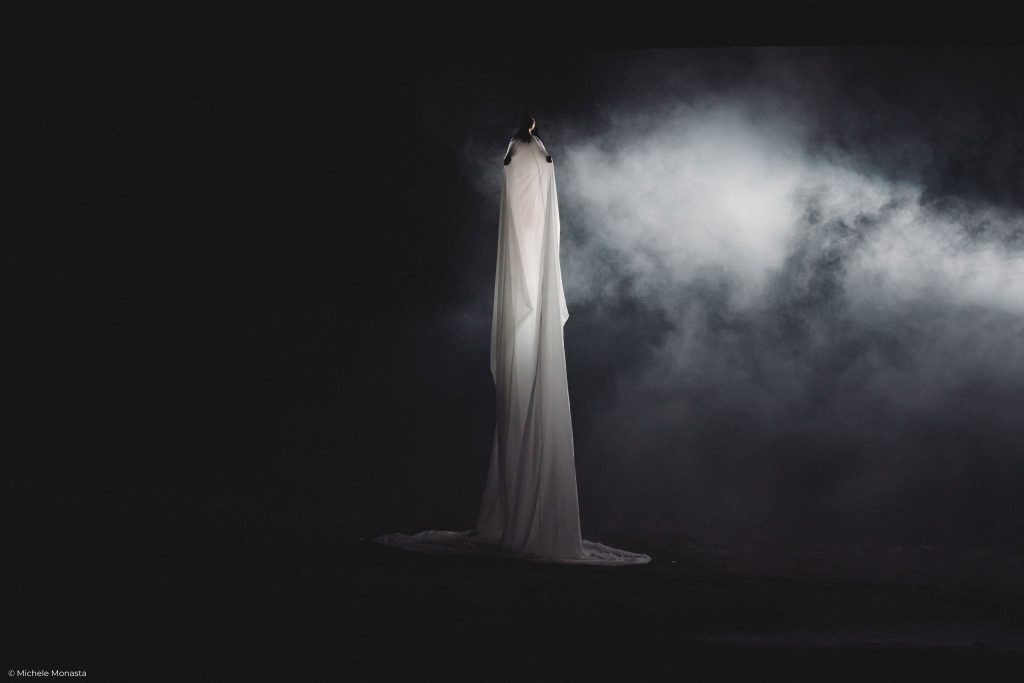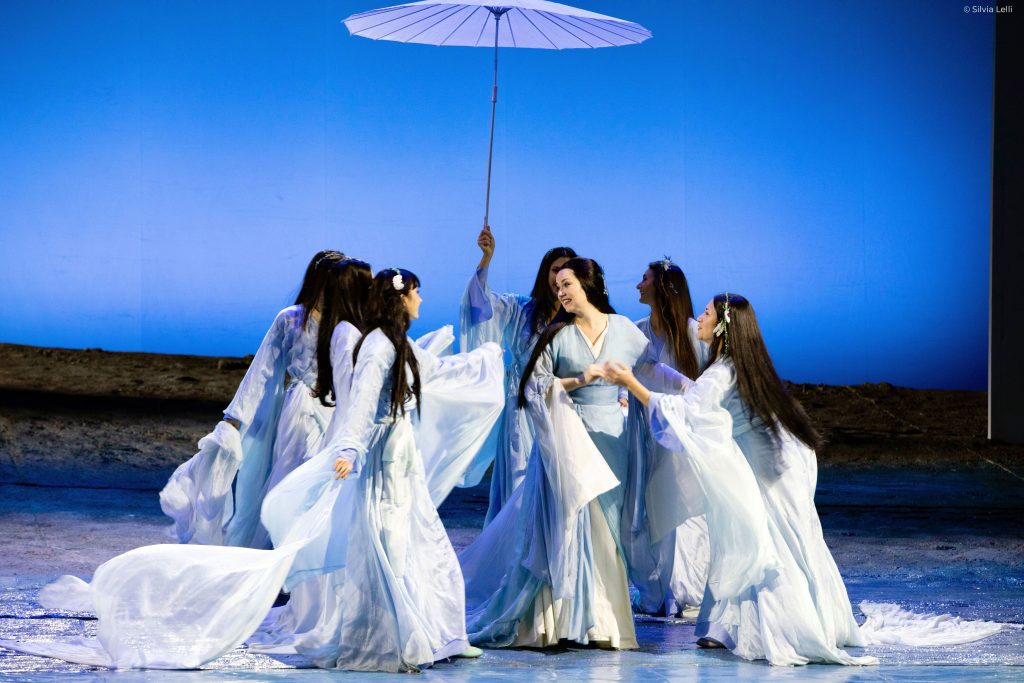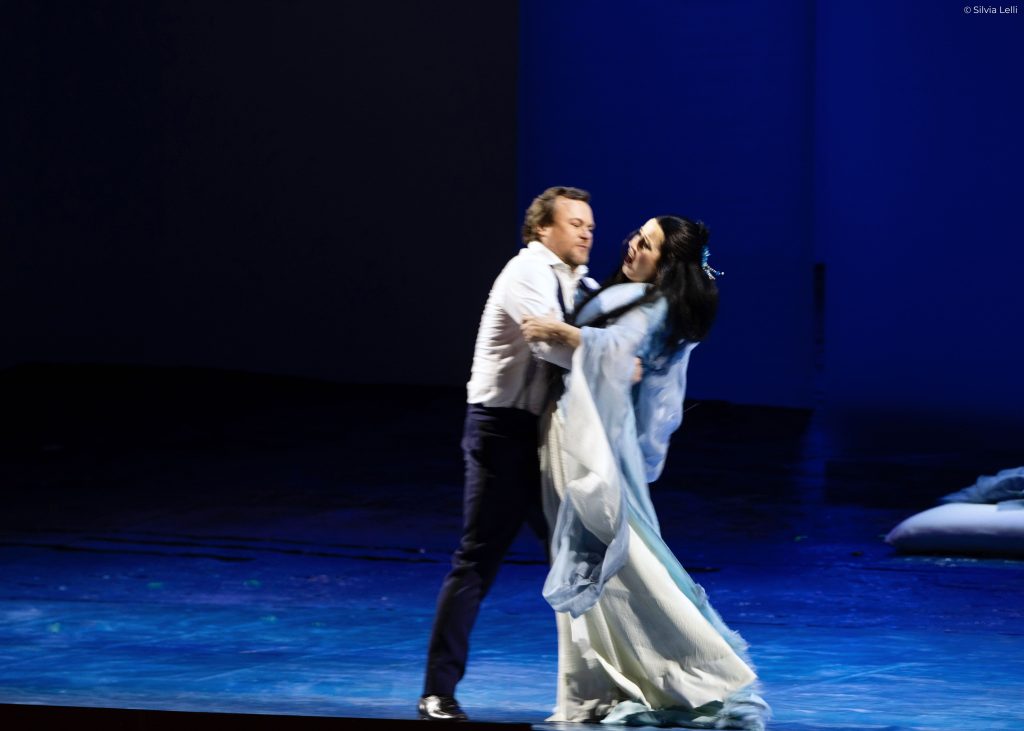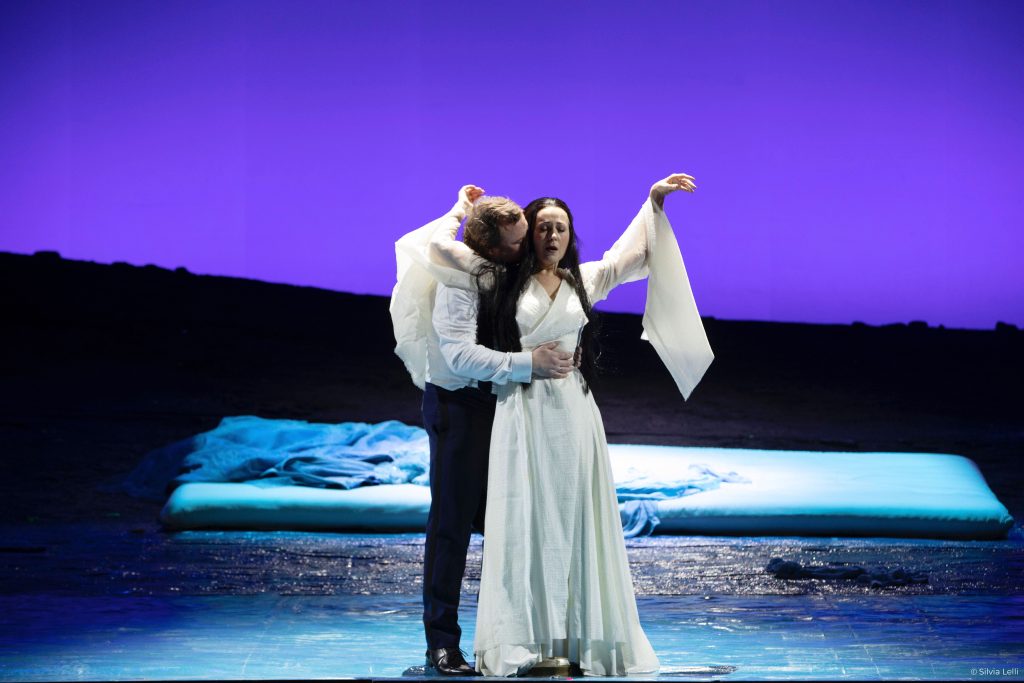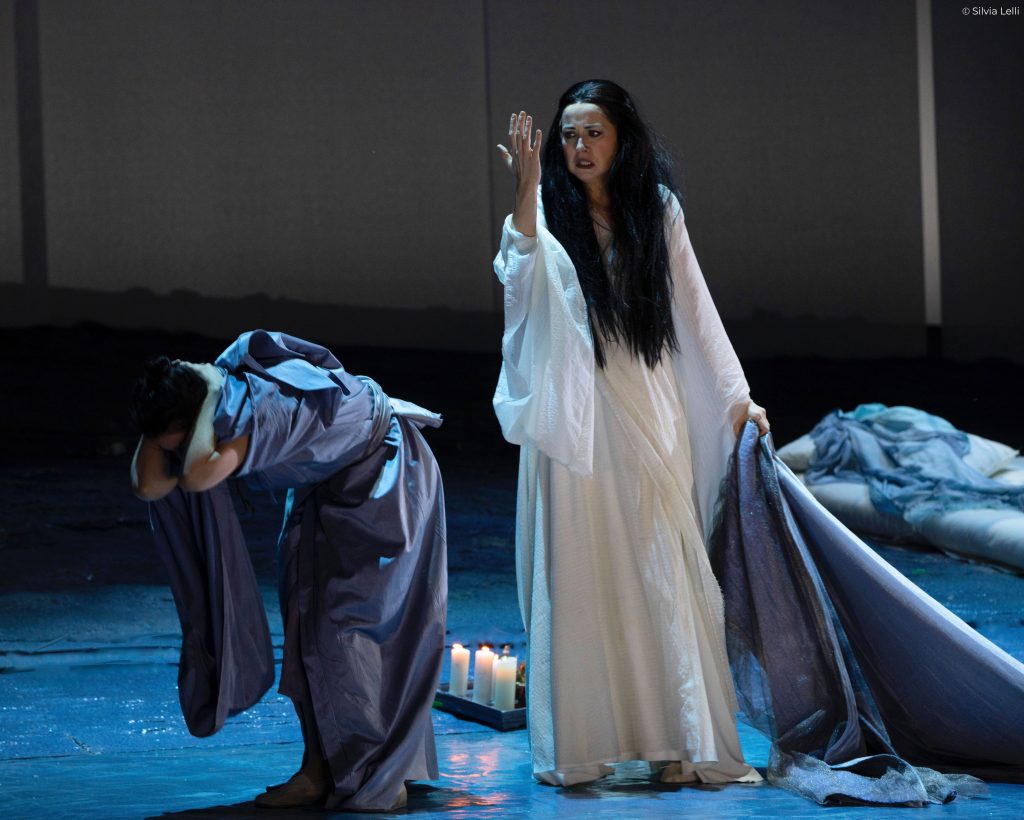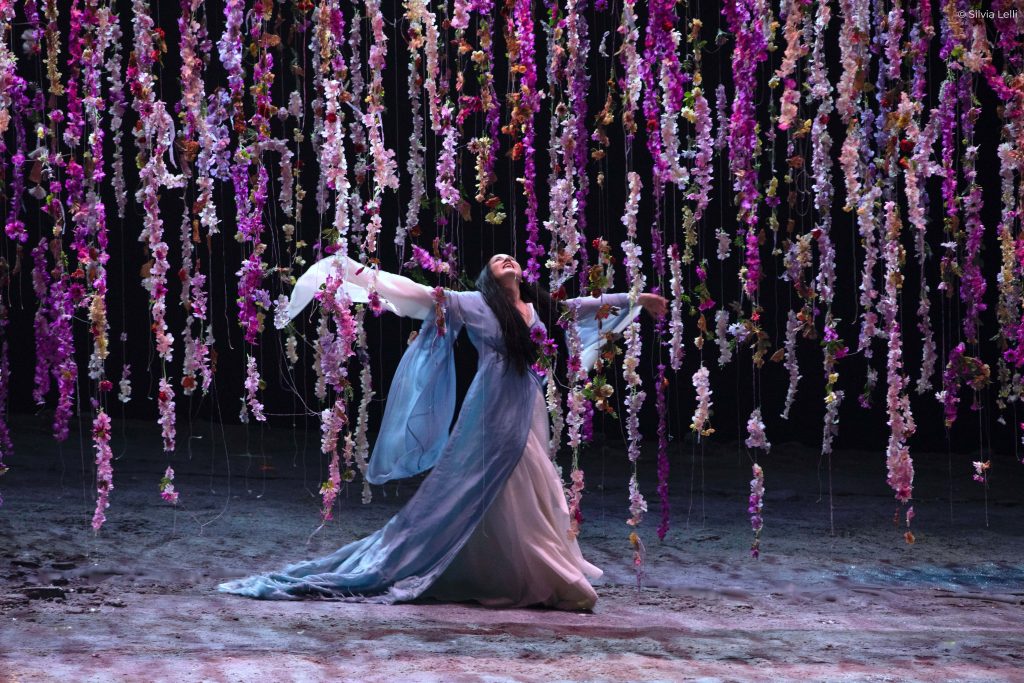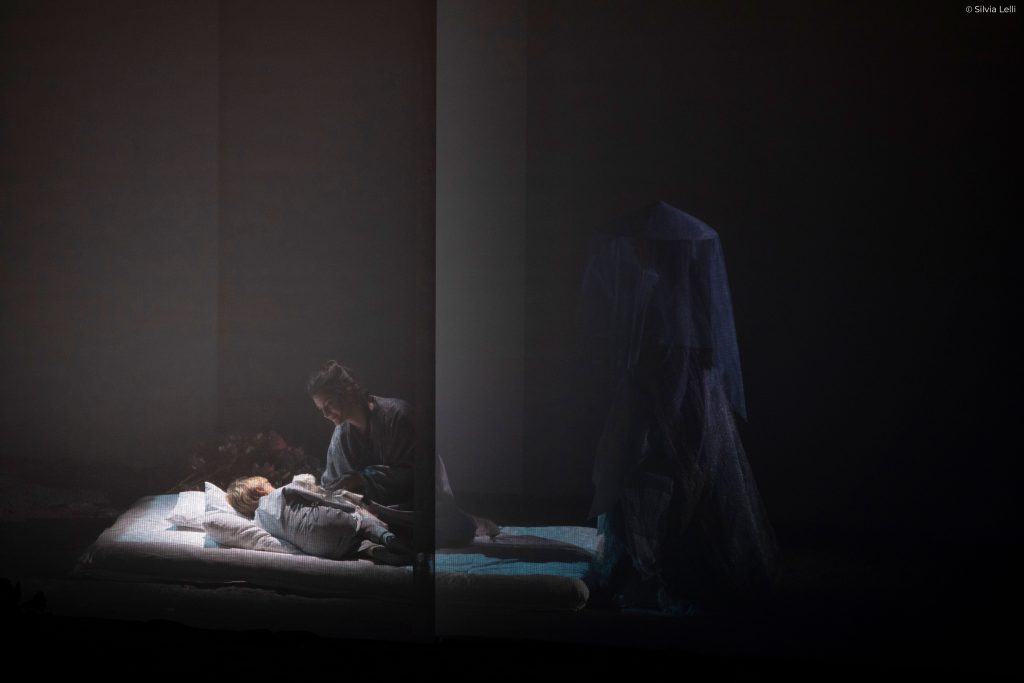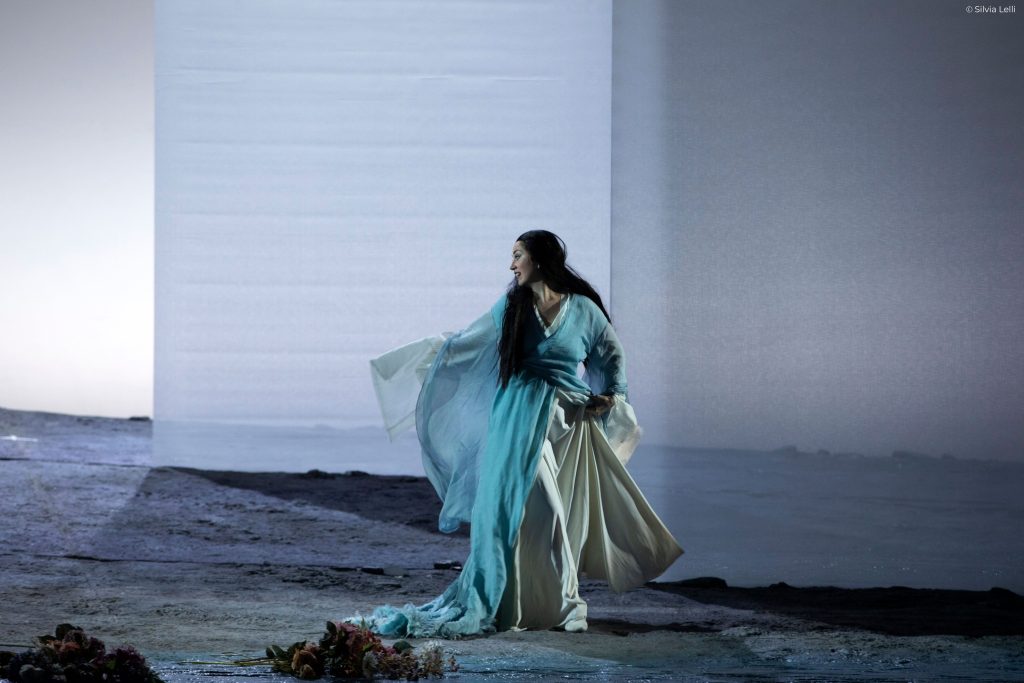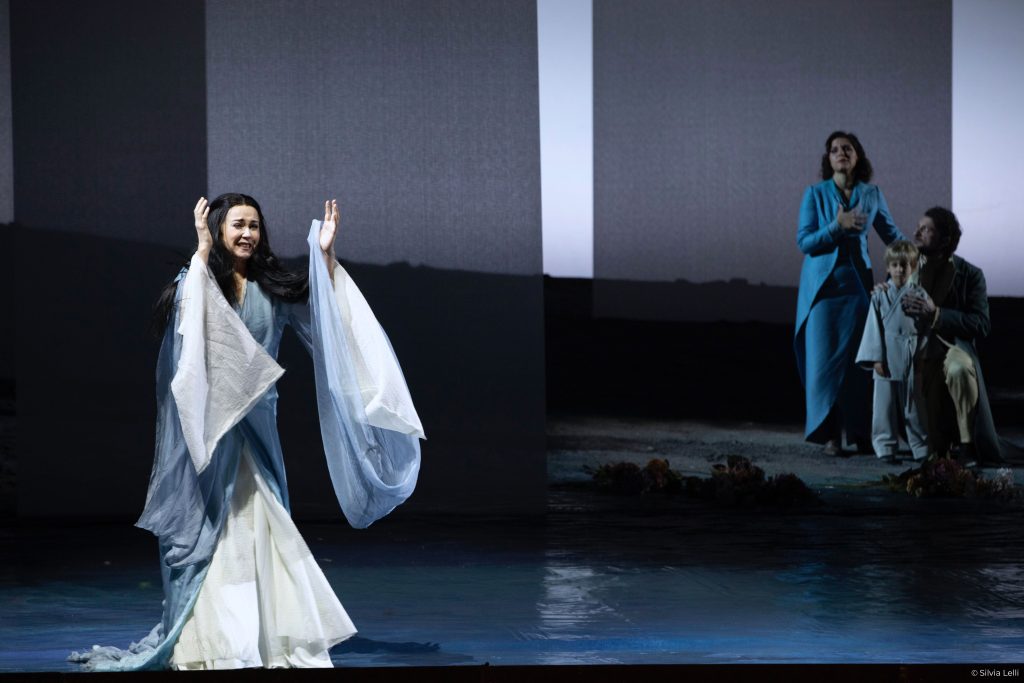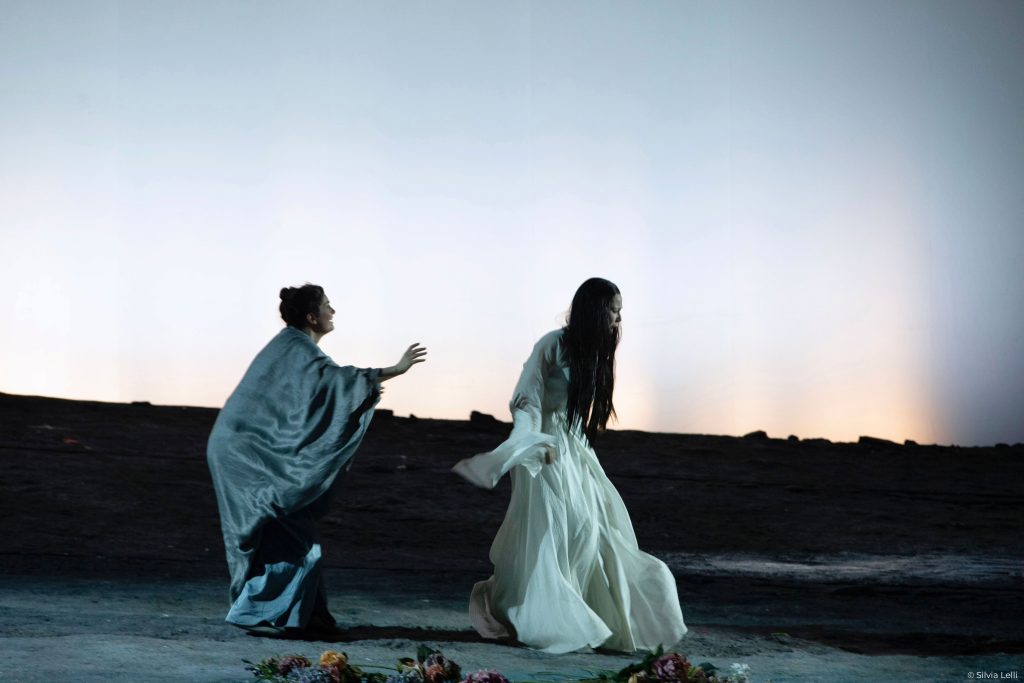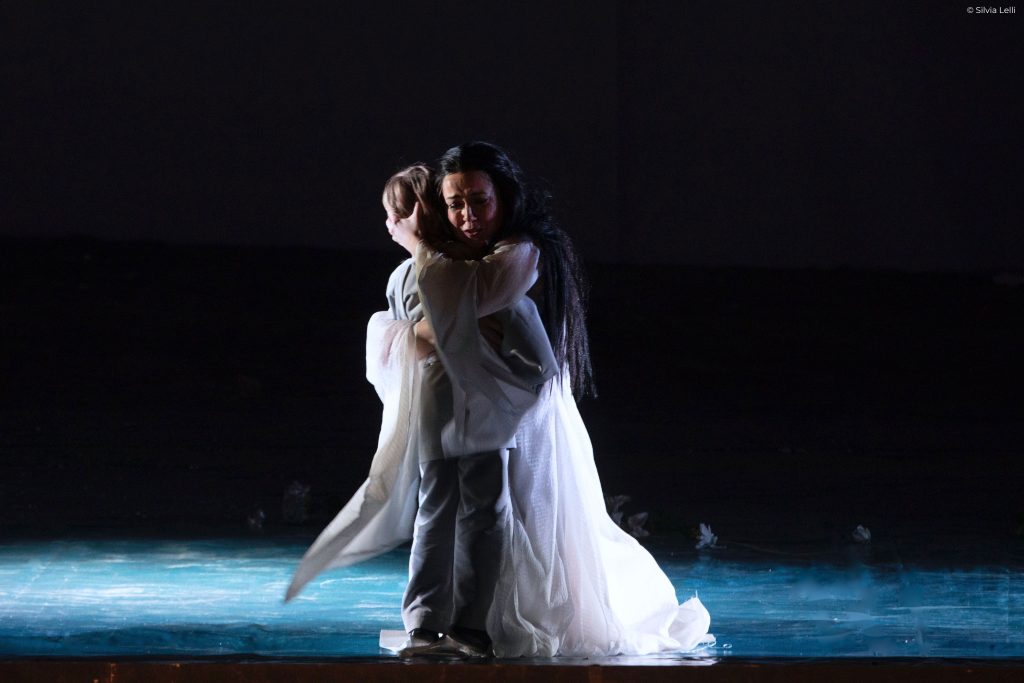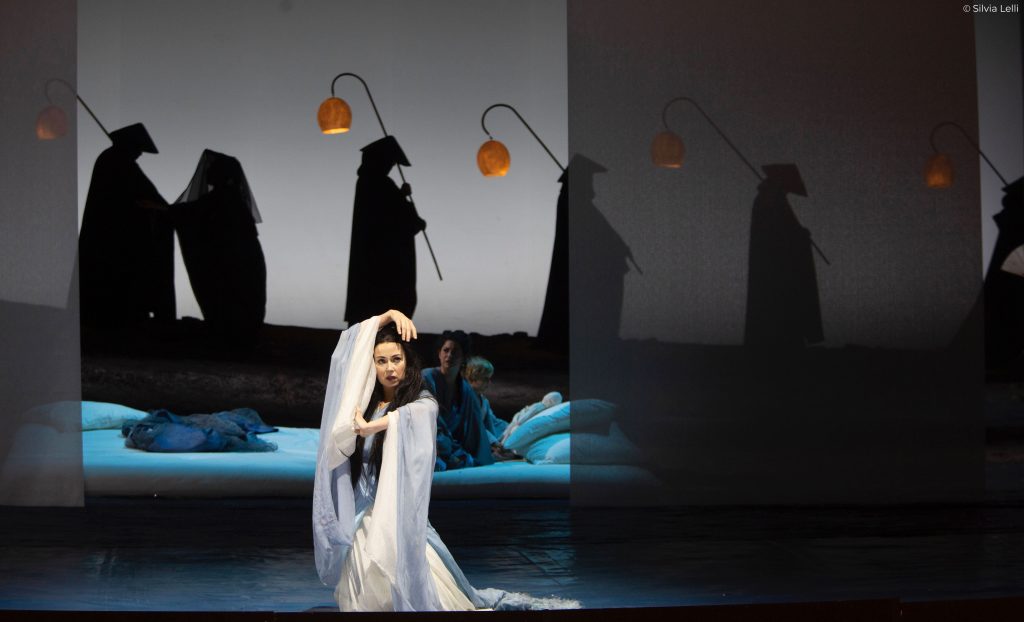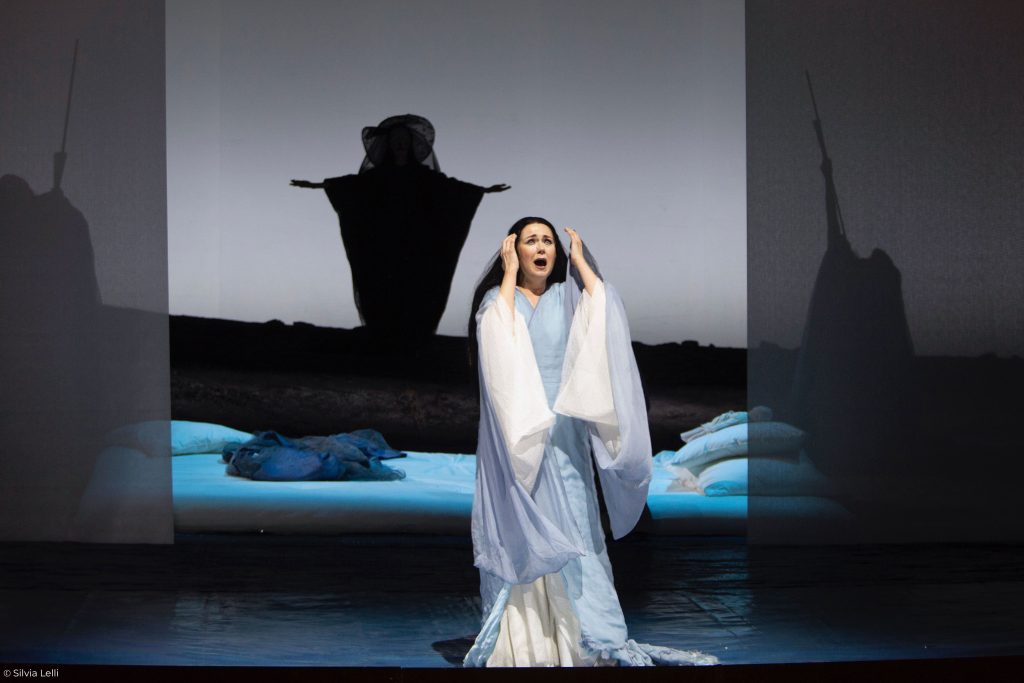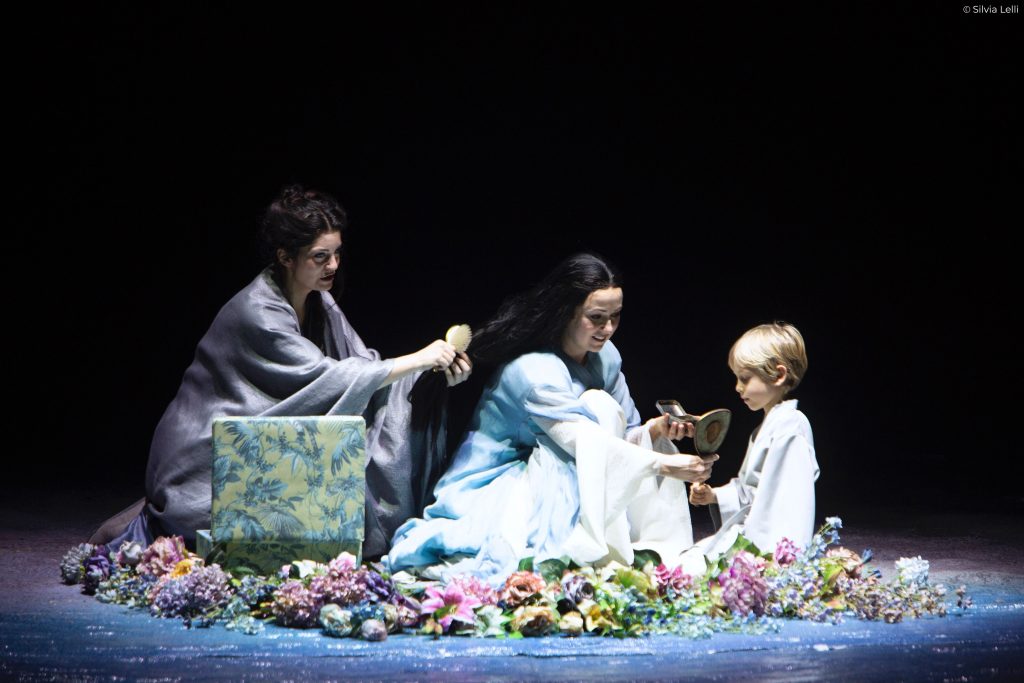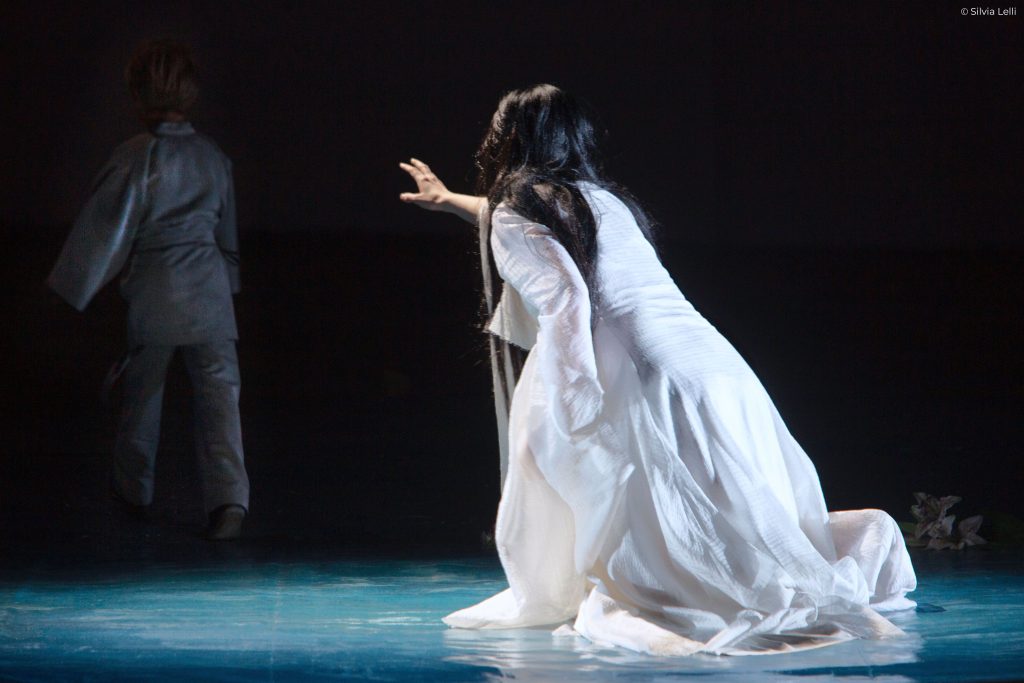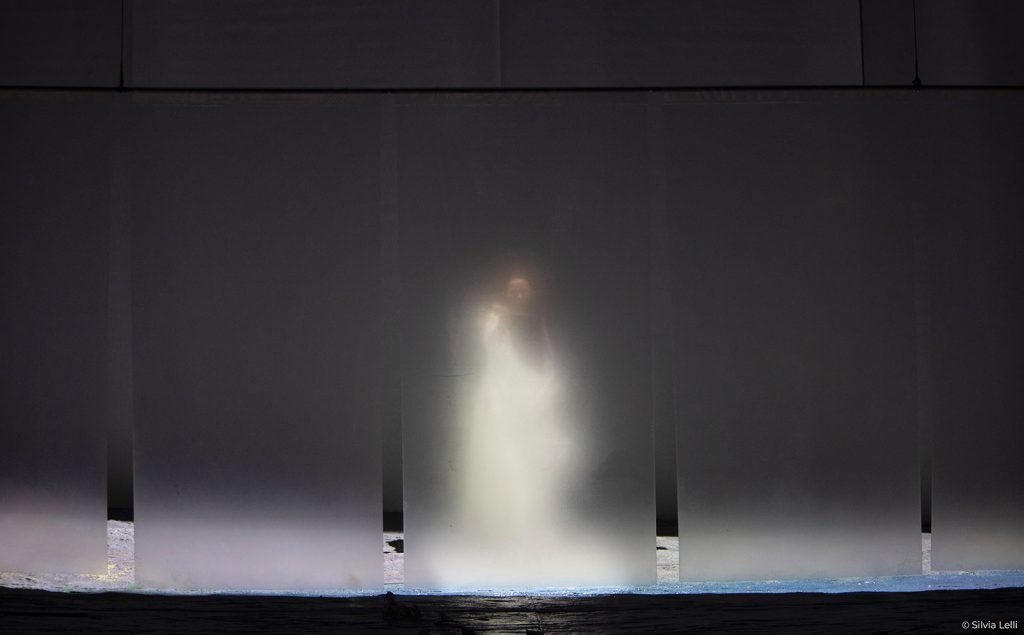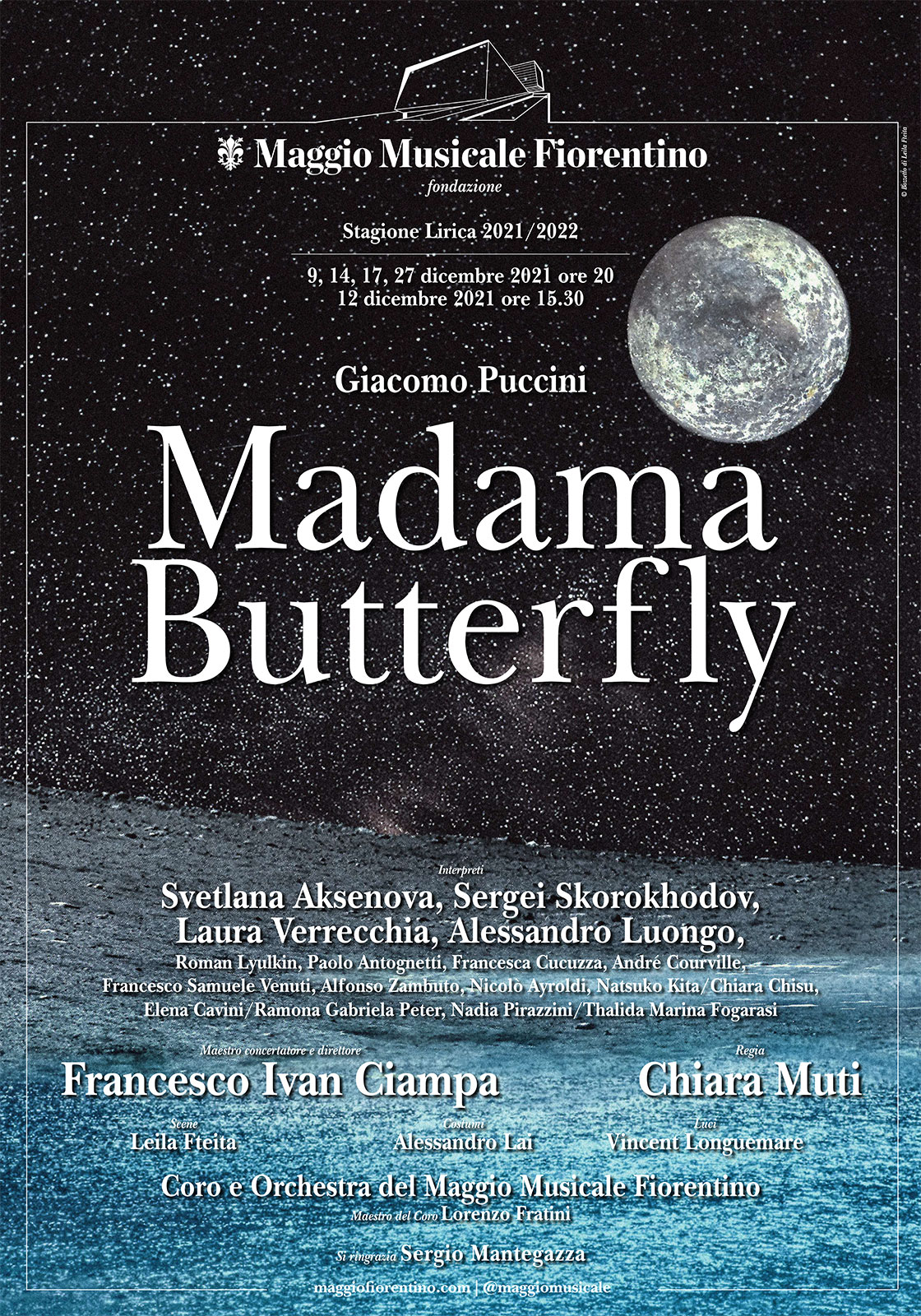
30 Jun Madama Butterfly
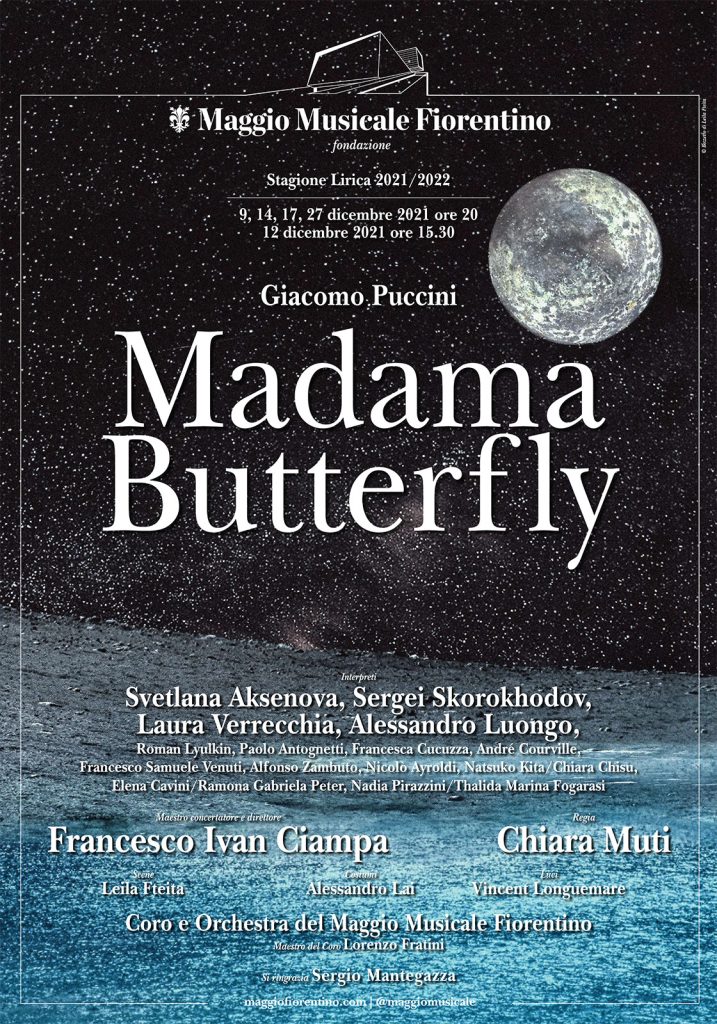
Madama Butterfly – G. Puccini
Conductor Francesco Ivan Ciampa
Director Chiara Muti
Set Design Leila Fteita
Costumes Alessandro Lai
Lighting Vincent Longuemare
Teatro del Maggio Musicale Fiorentino November 12, 15, 22, 26, 28 – December 1, 2021
Director’s Notes
The Drama of Waiting…
Imprisoned between land and sea… an exile… on the edge of nothingness… immersed in a dreamlike landscape of lights and pale colors from an enchanted, impalpable Japan… waiting for the illusion to shatter and for the blood to flow.
It takes but a few elements to outline a house that, in truth, does not exist — and never will.
Between inside and outside, there is no boundary.
The wedding nest is a melancholy mirage. Faint walls of white filigree, as fragile as Japanese paper, open and close, defining a non-space. Noren gently descend from above onto a tatami laid upon the ground, like an island adrift on the shore of the sea.
Everything appears as though it belonged to a dreamed, imagined, enchanted place.
At first, Butterfly bears the vivid hues of the Morpho butterfly, whose wings, though colorless, through optical effect reflect the light, breaking it into an effervescence of intense, iridescent blues… but alas, once the light is lost, so too is the color… scattered here and there in layers of garments that, like pieces of shed skin, lie inert upon the ground… like shattered butterfly wings.
And so, this figure—once a bright screen, now without light or color—moves forward toward her grim fate, the one to which she has always been destined, as reminded by the shadow of her father who, like a warning, appears in the fleeting opening scene… but only for a moment… before vanishing into the sea, like a memory sinking into the depths of a subconscious no longer willing to be disturbed.
In a dreamlike world, where Japan is evoked but never narrated, the only recognizable traditional symbol is the array of masks held aloft by relatives chanting “We disown you!” — rising against the sky, a reminder of the harsh codes of a society often devoid of human empathy for those who break its values. Even the mother, eternally veiled in mourning black and shrouded in shame, turns away forever, never once looking back, unmoved by the cries of the one she once called daughter.
Puccini never set foot in Japan… and to those who pointed this out, he would reply: “Human dramas are universal.” Butterfly is a radiant example of this. And so here she is, like a discarded doll, waiting for her master… blind… deaf… anchored on the sands that once belonged to her ancestors… her gaze fixed on the horizon, scanning the sea — the leitmotif of a desperate waiting… a sea whose flickering hope occasionally brightens the scene, representing the vastness of a repressed anguish, imprisoned in memory… an outcast… marginalized… forgotten.
She endures by drowning herself in alcohol, the sole dowry left to her by her absent husband in memory of his kisses — her only comfort and consolation… to blur the senses and reason in self-forgetfulness.
Her last fleeting moment of melancholy joy is intoned in “Shake that branch of cherry blossom and let it flood me with flowers…” — persuaded of his imminent return, a cascade of imaginary blossoms invades the sky, painting a spring within the desert of her soul…
A desert which, as the starry night descends, in that shroud-like Coro a bocca chiusa (humming chorus), reveals itself no longer earthly… and Butterfly, like a statue silhouetted on the horizon, fixes her gaze on a moon that seems more like a distant earth — a symbol of her estrangement from a world to which she no longer belongs.
Mishima writes: “It was not Pinkerton she awaited… in truth… it was tragedy… it was death, lying in wait for its consummation.”
Death… and with death, at last, the arrival of freedom! And the young woman approaches it without faltering… with honor… and in that final act of free will, it is no longer a matter of codes of honor dictating the law, for she would still have had a choice: “Villas, servants, gold… a princely palace…” — yet she chooses death!
Because it is the only real choice left.
Through death, Butterfly does not seek to absolve herself, but the man for whom she has waited in vain — it is Pinkerton whom, by dying, Butterfly redeems from dishonor, purifying his guilt in a fleeting instant of eternal truth.
And in that final instant… a child will watch, as if under a spell, his mother unfold her wings and ascend to the heavens… and a lost father will fall to his knees, petrified before the enormity of that ultimate act of supreme sacrifice… whose light will forever flash as an unbearable judgment in his son’s eyes.
Chiara Muti



